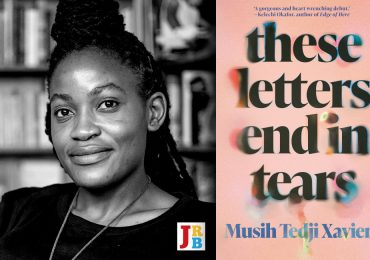Percy Zvomuya reviews The Beggars’ Strike, by Senegalese author Aminata Sow Fall, first published in English in 1981.

The Beggars’ Strike (also known as: The Beggars’ Strike, Or, The Dregs of Society)
Aminata Sow Fall
Nouvelles éditions africaines 1979 (French, as La Grève des battu)/Prentice Hall Press 1981 (English)
Even though the place where Aminata Sow Fall set her novel The Beggars’ Strike is unnamed, it could have been Abidjan, Harare, Nairobi, Johannesburg, or her home of Dakar—that is to say colonial cities, capitals designed by and for the white man.
The advent of independence wrought a conundrum for the black bureaucrats who came to run these cities. As it turned out, most of them inherited the disdain their white predecessors had for the lumpen and working classes—which categories, in the bad old days, coincided with black skin. What should the new black mayors and councillors do with the same old black rabble on the streets?
The Beggars’ Strike is Sow Fall’s second novel. Born in 1941, she is not very well known in Anglophone Africa (or indeed Anglophone Anywhere), but is highly regarded in Francophone Africa’s literary circles, where her novel Le Revenant (1976) is considered the first to have been published by a black Francophone African woman.
Biographical rituals out of the way, let’s take a look at the work itself. The novel, which is quite short (just ninety-nine pages), is a fascinating satire on the trashing of the rights of beggars in the city by its new black lords. Early on in the story, a bureaucrat pontificates:
… their presence is harmful to the prestige of our country; they are a running sore which should be kept hidden, at any rate in the Capital. This year the number of tourists has fallen considerably, in comparison with last year’s figures, and it’s almost certain that these beggars are to some extent responsible. We really can’t let them invade our cities and form a threat to public hygiene and the national economy.
These words—verbatim or in variation—will be familiar to many who live in African cities today.
For a hard example, consider how many hundreds of ‘undesirables’ were rounded up in Harare and dumped on the outskirts of the city when Queen Elizabeth II visited for the Commonwealth Heads of Government Meeting in 1991. Zimbabwe had enjoyed a decade of independence at that point. But that was nothing compared to what happened in 2005, when Robert Mugabe’s government demolished the ‘unauthorized’ houses of hundreds of thousands of people in an operation called ‘Murambatsvina’, which is Shona for ‘clean up filth’.
The chief protagonists in Sow Fall’s novel are, on one hand, Mour Ndiaye, the Director of the Department of Public Health and Hygiene, and his assistant Keba Dabo; and, on the other, Nguirane Sarr, a blind beggar and interpreter of the city’s streets, and Salla Niang, also a beggar and an excellent organiser. Is it permitted, in a book review, to parody Marx’s famous mantra about workers and unity? Perhaps it is, so let’s hazard this: ‘Beggars of the world unite; you have nothing to lose but your begging bowls.’
In an attempt to clean up the city, the two bureaucrats have decreed that beggars are only allowed in its outlying quarters. The government men mean business: a beggar, hurt in the violence that arises after the decree, dies after lying in a hospital unattended for five days.
At the deceased beggar’s funeral, Sarr cries out, ‘We are not dogs! You know perfectly well we’re not dogs. And they’ve got to be convinced of this too. So we must get organised.’
The beggars’ ingenious plan of action is located in the very act of charity itself, in how people don’t give out of the goodness of their hearts, but out of an acute ‘instinct of self-preservation’.
‘They need to give alms because they need our prayers,’ Sarr explains, ‘wishes for long life, for prosperity, for pilgrimages; they like to hear them every morning to drive away their bad dreams of the night before, and to maintain their hopes that things will be better tomorrow.’ But what if this quid pro quo was disrupted? What if the beggars went on strike?
Meanwhile, the city purge has been noted by the president and, as a consequence, the fortunes of Ndiaye are waxing. In the air, there’s talk of a new vice president—and his name is mentioned. To fireproof his chances, Ndiaye seeks the help of a powerful and mysterious sangoma, a man so sure of his art that he assures Ndiaye that if he follows his instructions to the letter and isn’t appointed to be vice president within a week, ‘You can take my life if you so wish.’
The sangoma’s precise instructions are that he should slaughter a bull, cut it into 72 portions and distribute it to ‘beggars who walk about the streets to beg’. The recipients of the portions are not to be from one district only, but should be from the four corners of the capital. However, as a result of the persecution of the beggars, there is a problem: all of them are to be found in only one place, what is known as the new Slum-Clearance Resettlement Area. ‘It’s not easy now to meet a beggar,’ someone observes, ‘you never see them anymore. They don’t come to get their handout; people take it to them.”
What’s an ambitious man to do? Ndiaye’s fate lies in the begging bowls of the people he has hounded from the city.
‘Kurumwa nechokuchera’ is a pithy Shona distillation of that foolhardy person who, hoe in hand, goes out onto the plain, randomly digging up burrows until he ploughs into one in which a cobra is sheltering, with fatal consequences. Shakespeare, having had no experience of Shona, put it somewhat differently when he wrote, in Hamlet, how a person might be ‘hoist with his own petard’.
So it is that Ndiaye’s ambitions for top office rot in the heat, like the hundreds of kilograms of beef in his truck that his chauffeur transports between the mendicants’ quarter and his mansion, as he begs for beggars to accept his offering. But the beggars, you see, are on strike.
- Percy Zvomuya is a writer and football fan.
Index
Books
- Le Revenant by Aminata Sow Fall
People
- Queen Elizabeth
- Robert Mugabe
Plays
- The Tragedy of Hamlet, Prince of Denmark, by William Shakespeare
Topics
- Slum clearance
- Operation Murambatsvina






2 thoughts on “We are not dogs! We must get organised: Percy Zvomuya reviews The Beggars’ Strike by Aminata Sow Fall”